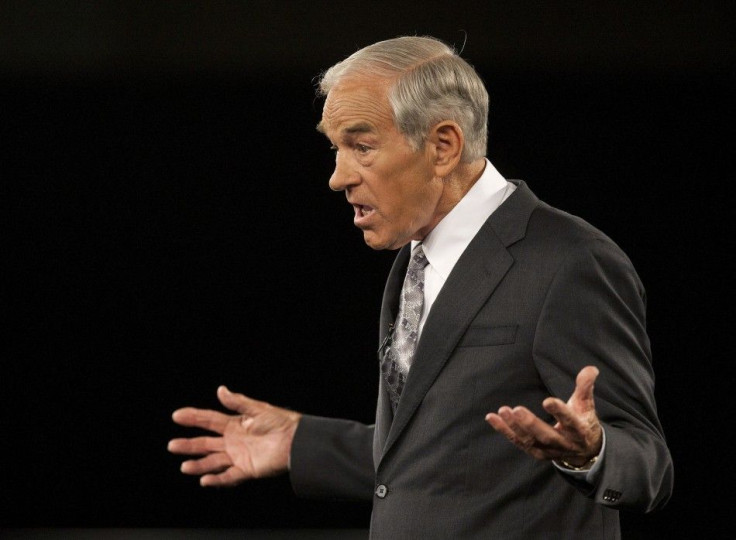Ron Paul Proposal Would Severely Curtail Supreme Court Docket
Analysis

Ron Paul seemed to take a sensible tack on the federal judiciary after his GOP primary rival Newt Gingrich proposed subpoenaing judges to testify before Congress and eliminating entire courts.
During the final Republican debate before the Iowa Caucus, Paul, a libertarian congressman from Texas, said Gingrich's plan would open a can of worms that would lead to trouble.
But Paul's stance on the federal judiciary is more similar to Gingrich's positions on activist judges and grotesquely dictatorial than his comments at the debate suggest.
Paul, who is poised to have a strong showing at the Jan. 3 Iowa Caucus, is a long-time sponsor of bill called the We the People Act that would severely curtail the power of federal judges and U.S. Supreme Court justices in hearing cases challenging state laws on religion, privacy or marriage.
Religious liberties such as prayer in school, that should be left to the states and communities; reproductive issues like abortion ... should also be left to the states and communities; and also defining marriage, Paul's communications director Rachel Mills explained in a 2008 interview on a conservative public affairs program.
While Paul prides himself as a staunch libertarian and boasts of his adherence to the U.S. Constitution, the bill would give an individual little recourse in fighting certain state laws that could violate constitutionally-protected rights. Parties would be left to the whim of state judges and high court justices, many of whom must run political campaigns and win elections.
Scholar: Paul Wants to Remove Federal Courts from Determining Whether State Laws Violate U.S. Constitution
As Darren Hutchinson--a blogger and law professor at American University who has written extensively on Paul's We the People Act--explained in September, Paul wants to remove federal courts from the business of deciding whether state laws violate the federal constitution.
Under Paul's We the People Act, the Supreme Court likely would have been barred from hearing a case from John G. Lawrence, the now-deceased plaintiff who successfully overturned a Texas law criminalizing consensual sex between gay men.
Furthermore, past Supreme Court decisions on areas mentioned in the We the People Act would be useless to individuals challenging the constitutionality of state laws, as these rulings would not be considered binding precedent in state courts. For instance, a party could not cite the right to privacy articulated in Griswold v. Connecticut, a landmark Supreme Court ruling from 1965 overturning a state ban on contraceptives.
A representative of Paul's presidential campaign did not immediately return request for comment.
Paul has pushed his We the People Act in each session of Congress since at least 2004. The bill has never gained any real traction. While there have been a few cosponsors, none of Paul's colleagues in Congress this year have signed onto the bill since it was introduced March.
The legislation is viewed as a sop to religious conservatives who have railed against the federal judiciary for putting a halt to public prayer during school events.
Mills, Paul's communications director, had cited a 2000 high court decision barring students in a Galveston, Texas, high school from leading a prayer before football games.
How can anyone imagine that the Founding Fathers would agree with a system [in] which the federal government tells high school kids in this small town--and thus it becomes precedent all over the country-that they can't pray at a game, Mills said in a 2008 interview on a show sponsored by an organization called The Conservative Caucus.
On Paul's campaign site, he touts his We the People Act as a way to effectively repeal Roe v. Wade and prevent activist judges from interfering with state decisions on life by removing abortion from federal court jurisdiction.
As for same-sex marriage, the We the People Act would act as a firewall against any effort to legalize same-sex marriage through the federal courts. Under Paul's bill, a federal judge would not have had the opportunity to overturn California's Proposition 8--a referendum prohibiting same-sex marriage--under the 14th Amendment's due process clause after the state Supreme Court upheld the ban.
In Paul's view, the federal court decisions striking down local laws mentioned in the We the People Act have wrested from state and local governments issues reserved to the people by the Tenth Amendment.
What is left unmentioned is the 14th Amendment's guarantee of equal protection under the law.
--
© Copyright IBTimes 2025. All rights reserved.





















